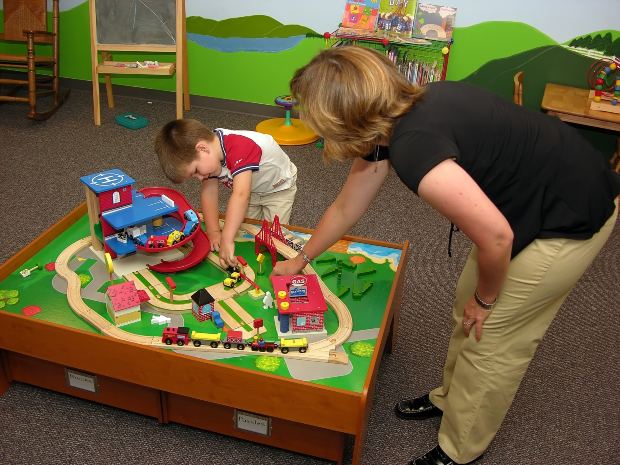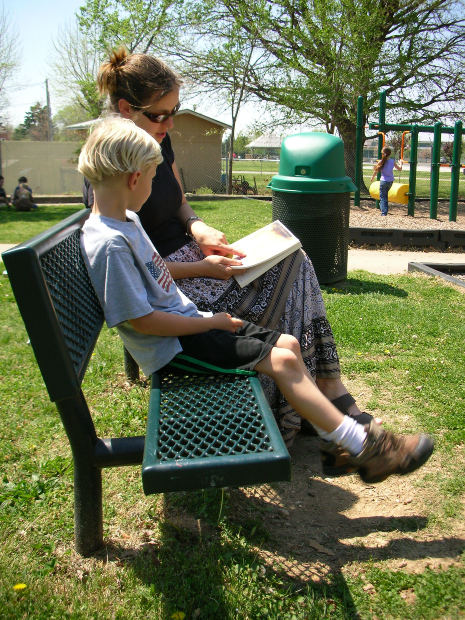You’ll always remember the day you brought your bundle of joy home for the first time. Your heart and your head were full of wonderment and delight at this whole new person, all shiny and new and full of the promise of the life he or she would lead and of the person he or she would become. Brain surgeon, lawyer, artist, writer, comedienne, self-help guru extraordinaire. All these things were possibilities for the amazing masterpiece you somehow managed to create. Many parents will remember the first smile, the first step and the first real words uttered as this tiny little person makes his way in life. There are literally thousands of moments that a parent can look back on with pride as their own little creation moves from baby to toddler to child and even on into adulthood.
But what happens when there is a glitch somewhere along the developmental trajectory? What happens if your little bundle of joy is not sailing through her early childhood development? What happens when your child’s classmates are ahead in school while your little one struggles in the classroom? What happens if he does not grow out of it? What happens if your child has a learning difficulty? This is no longer just about school systems or lofty ideals of a pedagogical nature. This is no longer about medical discussions on brain health you read on some self improvement forum years ago. This is not about government policy on educational funding you heard about in the news and only half listened to. This is much closer to home now. This is your baby we’re talking about.
Learning difficulties and learning disabilities in children can be neurological in origin and can make it very hard for kids in the educational arena as well as in learning new skills in other domains. Having such a difficulty does not just impact on intellectual development, but it can also have negative implications for social and emotional development. However, if you suspect that your child has a learning difficulty and even though this difficulty may be biological in nature, this is not a life sentence. Here are some top tips from educational professionals on some concrete things that you can do to help.
1. Talk to your partner
Or other relevant family member who has known your child since birth. Sound out your fears with someone who knows your child well and loves them as much as you do (if that’s possible). Check out whether or not what you are seeing and worrying about is being noticed by the other carers in your child’s life. Perspective is everything and you should get more than one. And while these perspectives may be somewhat biased, they are long term and they reflect your child’s entire history, not just what is happening right now in the classroom or on the playground.
2.Talk to your child’s teacher.
While you may know your child better than any other person in the world, remember that your child’s teacher has a very unique perspective. He or she may have as many as 20-30 same age peers to compare your child to. And while you may not like some of the comparisons, it is useful to have this perspective too. As parents, we may often compare our child to a sibling three years older or to a cousin whom you see at holidays or to a neighbor’s child who stands out for some reason or another.
But we very rarely get to be a fly on the wall when our child is standing beside 20-30 kids his age being presented with a whole host of educational, social, moral or even athletic challenges which are pitched at his level. Indeed, it is very likely that we only know what a child his age is ‘supposed’ to be able to do when he fails to do it and it seems that every other child on the planet did not.
3.Talk to the experts.
If you have engaged with your child’s teacher and if you have put in place some extra supports to remediate some difficulties and still your child is struggling, you may need to go one step further. You may need to book an appointment with the special education teacher at your child’s school. If that is not sufficient, you may need to seek out an educational psychologist for consultation.
4. Get all the facts.
If you have had consultation with an educational specialist at your child’s school or with an educational psychologist, and still you are unsure of how to best support your child, you may need to go down the formal assessment route. People think that getting a psycho-educational assessment or IQ testing done is scary, but it is not. Getting an assessment done is extremely informative and it is not painful in any way, shape or form.
Many kids enjoy the assessment process as IQ tests are set up as a series of games and tasks which are broken up into short segments. Many involve your child looking at puzzles or pictures and figuring out what goes with what or what comes next in a pattern. Some items are verbal and some are spatial. Some are tests of memory and some are more related to verbal comprehension or even to understanding of social and moral norms. The IQ test is usually followed by some tests of attainment which will likely look at your child’s ability to read, write and do arithmetic, but may be restricted to only the area of concern. But at the end of this testing process, you will find out where your child’s individual strengths and weaknesses lie. You will find out if they are stronger visual or auditory learners. You may find out what their spatial skills or receptive and expressive language skills are like.
Remember that while an IQ score is just a number, it represents a composite of different skill sets that your child presents with and this number is ranked in relation to what would be expected for your child’s age group. So knowing which areas your child is strong or weak in will enable you to help them to learn better. In the same vein, knowing that your child’s decoding skills are much weaker or stronger than their reading comprehension skills are will enable you to tailor their literacy support, if indeed that is where the difficulty lies. At the end of this process, you should also get a whole list of recommendations for what you should do next to best support your child’s needs. So my opinion is that this process is an empowering one, not a limiting one.
5. Do your own research, but only use informed scientific sources.
Your psychologist will often refer you to certain websites or literature based on the outcomes of the assessment. So you may be looking at books on general intellectual difficulties or developmental disabilities. Alternately, you may need to make contact with your local Dyslexia Association or other specific learning difficulty experts. But the point is that you should only use informed scientific sources. Googling your child’s diagnosis is fine, but there is no “weed out” process on people’s blogs and some of the stuff online is downright scary and often incorrect.
Many other sites online may be aiming to sell you something and you need to be very careful to not get sucked in to hoaxes and promises of cures by pseudo-scientific self help gurus selling snake oil about improving your brain health without having any scientific support for their methods or products. So do your research, but be careful. There are very real and powerful scientific innovations which can help your child to make progress. Just make sure you can separate the scientists from the charlatans.
6. Talk to your friends for support, but remember, most of them are not clinicians.
If your child has a genuine learning difficulty– whether that be related to, for example, weak general language comprehension, lower than average overall intellectual skills or a specific learning difficulty in some area of attainment—she will not grow out of it and it is not a phase. No amount of hugs and love or equine therapy will make a learning difficulty disappear.
That is of course, not to say that you don’t give plenty of hugs and love and have pets if you so choose, but it never ceases to amaze me how many people try to make their friends feel better by telling them that their child’s learning difficulty is not real or that the child will grow out of it. Certainly the quality of education matters significantly, but without targeted intervention, there may be skills that your child will not learn incidentally. So while you should always seek the emotional support of your friends and loved ones, please remember that most of them are not clinicians, specialist teachers or psychologists. So do not let them make you feel guilty for accessing appropriate intervention and do not let them talk you into bizarre and unscientific strategies for “fixing” your child.
7. Do not panic.
There are hundreds of thousands of people walking around, leading meaningful lives, while having some level of learning difficulty. Some of them may have borderline intellectual impairments. Others may have severe reading or spelling difficulties. Others may have social skills or working memory deficits. But the fact of the matter is that many of them continue to go undiagnosed and many around them will never know the difference. However, the damage that can be done to a person’s sense of self worth or self efficacy by thinking they are stupid is infinitely worse than knowing they have a language difficulty or a reading difficulty and importantly knowing that there is help out there. So don’t panic. Get your facts straight first and then decide what you need to do next.
8. Come up with a plan of action.
Once you have determined the nature of the difficulty, it is time to come up with a plan. This plan of action should be informed by the teachers and by the educational psychologist. The plan should identify your child’s areas of strength and weakness. It should identify tangible goals and realistic time frames for meeting them. It should contain concrete strategies for attaining those goals and these strategies should be evidence based. So if it is Dyslexia support group or a brain training course you are sending your child on, make sure the strategy is evidence based, put it into your plan and make sure that it is consistent with the overall goals of the plan. This plan should then be reviewed at regular intervals to determine which strategies are effective and which need to be amended/improved.
9. Get learning support.
Most modern schools have some level of learning support available within the school system. So you may need to see a reading or a mathematics specialist teacher at the school. You may also need to access various professional therapies like speech and language therapy if your child’s difficulty is related to weak expressive or receptive language difficulties. You may have to see an occupational therapist if your child has some difficulties with fine or gross motor co-ordination. You may need to seek follow-up support with an educational or clinical psychologist if your child has not yet acquired age appropriate social skills or emotional regulation skills.
10. Love your child anyway.
Irrespective of whether or not your child winds up with a diagnosis. Irrespective of whether or not your child has a general learning difficulty, a specific learning difficulty or is just a little bit behind in some area of academic or social and emotional/development. This is still your baby. This is still the same bundle of joy that you first brought home and loved with all your heart and protected with with all your might. So your expectations may have changed somewhat.
Well, I suspect you know by know that that was going to happen anyway, no matter where you live or who you are. Life is never quite the way we imagined. It is much more difficult, much less Hollywood, and infinitely more interesting and exciting than our parents ever told us about.
Featured photo credit: Shannon O’Brien via shannonrosephotography.weebly.com






















































